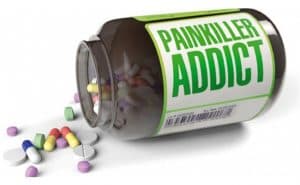Prescription Opioid Addiction
Opioid of drugs and abuse is a serious public health problem in the US. Read about therapies, including assisted drug therapy to treat opioid addiction.
Addiction can happen to anyone, of any age, and at any point or station in life. Some addicts are openly discussed, those that tear apart families from the first use like meth or heroin. Other addictions such as gambling or alcohol have numerous, specific programs that target the intense effect these substances can have over time, but addiction can happen out of nowhere. Addiction can begin with a single prescription that is needed and necessary and lead to years of issues that re related to an addiction to that drug. One of the most common prescription addictions is that of opioids.
Prescription Opioid Addiction
 Opioids are defined as an opium like compound that binds to one or more of the three opioid receptors in the body. These are most commonly prescribed for pain. Some of the most common are Oxycodone, OxyContin, Percocet, Codeine, Fentanyl, and Demerol. Each of these medications has a place and purpose, but are also highly addictive for many. When taking opioids a euphoric effect is produced. When used correctly these can limit pain from an injury, illness, or surgical procedure, but when abused or misused, other effects may occur. These can include euphoria, lethargy, confusion, dizziness, headache, seizures, stomach issues, and even difficulty breathing. For some, even changes in vision can even occur.
Opioids are defined as an opium like compound that binds to one or more of the three opioid receptors in the body. These are most commonly prescribed for pain. Some of the most common are Oxycodone, OxyContin, Percocet, Codeine, Fentanyl, and Demerol. Each of these medications has a place and purpose, but are also highly addictive for many. When taking opioids a euphoric effect is produced. When used correctly these can limit pain from an injury, illness, or surgical procedure, but when abused or misused, other effects may occur. These can include euphoria, lethargy, confusion, dizziness, headache, seizures, stomach issues, and even difficulty breathing. For some, even changes in vision can even occur.
Not sure if your insurance covers alcohol treatment?
Check your insurance coverage or text us your questions for more information.
Oxycodone
Oxycodone, OxyContin, and Percocet are all heroin like in their effects. These medications change how the central nervous system responds to pain. Doctors tend to give these medications for severe injuries or long term pain. Unfortunately, they are all highly addictive. Even with extreme monitoring, these medications are commonly abused.
Codeine
Codeine is also a prescription medication that is used to treat mild or moderate pain. Many times this is given as an ingredient in other medications, like cough syrup for cold or flu like symptoms. However, when it is taken in excess it has a sedative effect that can cause unconsciousness or altered consciousness for a time. Some people mix codeine with candy, soda, or other substances for a quick fix. This is a monitored medication, but is often given as a form of treatment.
 Fentanyl
Fentanyl
Fentanyl is a synthetic opioid that is given for acute or chronic pain, typically for cancer patients. This comes in various forms but can be worn as a patch. Fentanyl is also able to be manufactured illegally which makes it easy to get even without a prescription. This is a medication that is often sought after the doctor stops prescribing because an addiction has been established, even though that was not the intent. When misused, Fentanyl can cause hallucinations and nightmares.
Demerol
A final commonly prescribed and abuse opioid is Demerol, though once given for labor pains it is now not as common and is only prescribed for moderate or severe pain. It is not as common or popular but can have lasting negative effects.
If addicted to opioids then help is needed to deal with both the addiction and initial withdrawal. Withdrawal symptoms include intense cravings, agitation, trouble sleeping, excessive sweating, and digestive issues. The effects can be dangerous and harmful both physically and mentally. If you do have an addiction to opioids it is best to seek medical help. Be honest with your provider as it could save your life.
CLICK HERE to get a Free Confidential Addiction Treatment Assessment.
